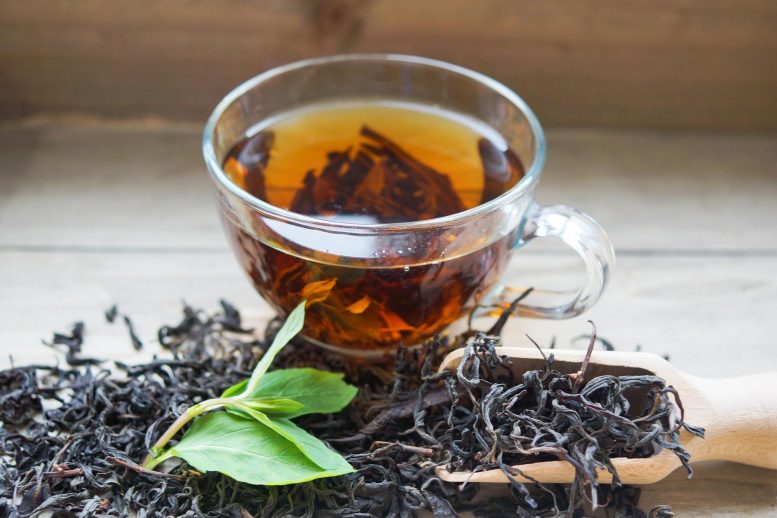
The flavonoids found in black tea have been linked to improved cardiovascular health later in life. Drinking a cup of black tea daily may provide these benefits, but if you are not a tea drinker, there are other dietary options that contain flavonoids.
Drinking a daily cup of tea could have potential benefits for your health as you age, but even if you’re not a tea drinker, you can still reap the benefits of flavonoids through other dietary options. Flavonoids are naturally occurring substances found in many common foods and drinks such as black and green tea, apples, nuts, citrus fruits, berries, and more.
Flavonoids have long been recognized for their health benefits, but new research from Edith Cowan University (ECU) suggests they may be even more beneficial than previously believed. The Heart Foundation supported a study of 881 elderly women (median age of 80) which found that those who consumed a high level of flavonoids in their diet were less likely to have extensive build-up of abdominal aortic calcification (AAC).
AAC is the calcification of the abdominal aorta — the largest artery in the body which supplies oxygenated blood from the heart to the abdominal organs and lower limbs — and is a predictor of cardiovascular risks such as heart attack and stroke. It has also been found to be a reliable predictor for late-life dementia.
ECU Nutrition and Health Innovation Research Institute researcher and study lead Ben Parmenter said while there were many dietary sources of flavonoids, some had particularly high amounts.
“In most populations, a small group of foods and beverages—uniquely high in flavonoids—contribute the bulk of total dietary flavonoid intake,” he said. “The main contributors are usually black or green tea, blueberries, strawberries, oranges, red wine, apples, raisins/grapes, and dark chocolate.”
The Flavonoid Family
There are many different types of flavonoids, such as flavan-3-ols and flavonols, which the study indicated appear to also have a relationship with AAC. Study participants who had a higher intake of total flavonoids, flavan-3-ols, and flavonols were 36-39 percent less likely to have extensive AAC.
Black tea was the study cohort’s main source of total flavonoids and was also associated with significantly lower odds of extensive AAC. Compared with respondents who didn’t drink tea, participants who had two-to-six cups per day had a 16-42 percent less chance of having extensive AAC.
However, some other dietary sources of flavonoids such as fruit juice, red wine, and chocolate, did not show a significant beneficial association with AAC.
Not Just Tea
Though black tea was the main source of flavonoids in the study — likely due to the age of the participants — Mr. Parmenter said people could still benefit from flavonoids without putting the kettle on.
“Out of the women who don’t drink black tea, higher total non-tea flavonoid intake also appears to protect against extensive calcification of the arteries,” he said. “This implies flavonoids from sources other than black tea may be protective against AAC when tea is not consumed.”
Mr. Parmenter said this was important as it allows non-tea drinkers to still benefit from flavonoids in their diet.
“In other populations or groups of people, such as young men or people from other countries, black tea might not be the main source of flavonoids,” he said. “AAC is a major predictor of vascular disease events, and this study shows intake of flavonoids, that could protect against AAC, are easily achievable in most people’s diets.”
Reference: “Higher Habitual Dietary Flavonoid Intake Associates With Less Extensive Abdominal Aortic Calcification in a Cohort of Older Women” by Benjamin H. Parmenter, Catherine P. Bondonno, Kevin Murray, John T. Schousboe, Kevin Croft, Richard L. Prince, Jonathan M. Hodgson, Nicola P. Bondonno and Joshua R. Lewis, 3 November 2022, Arteriosclerosis, Thrombosis, and Vascular Biology.
DOI: 10.1161/ATVBAHA.122.318408
Never miss a breakthrough: Join the SciTechDaily newsletter.
1 Comment
This article recommends black tea. Most people in the UK drink tea with milk. Why is tea with milk excluded? Does milk diminish the beneficial effect of the flavonoids? If so, how?